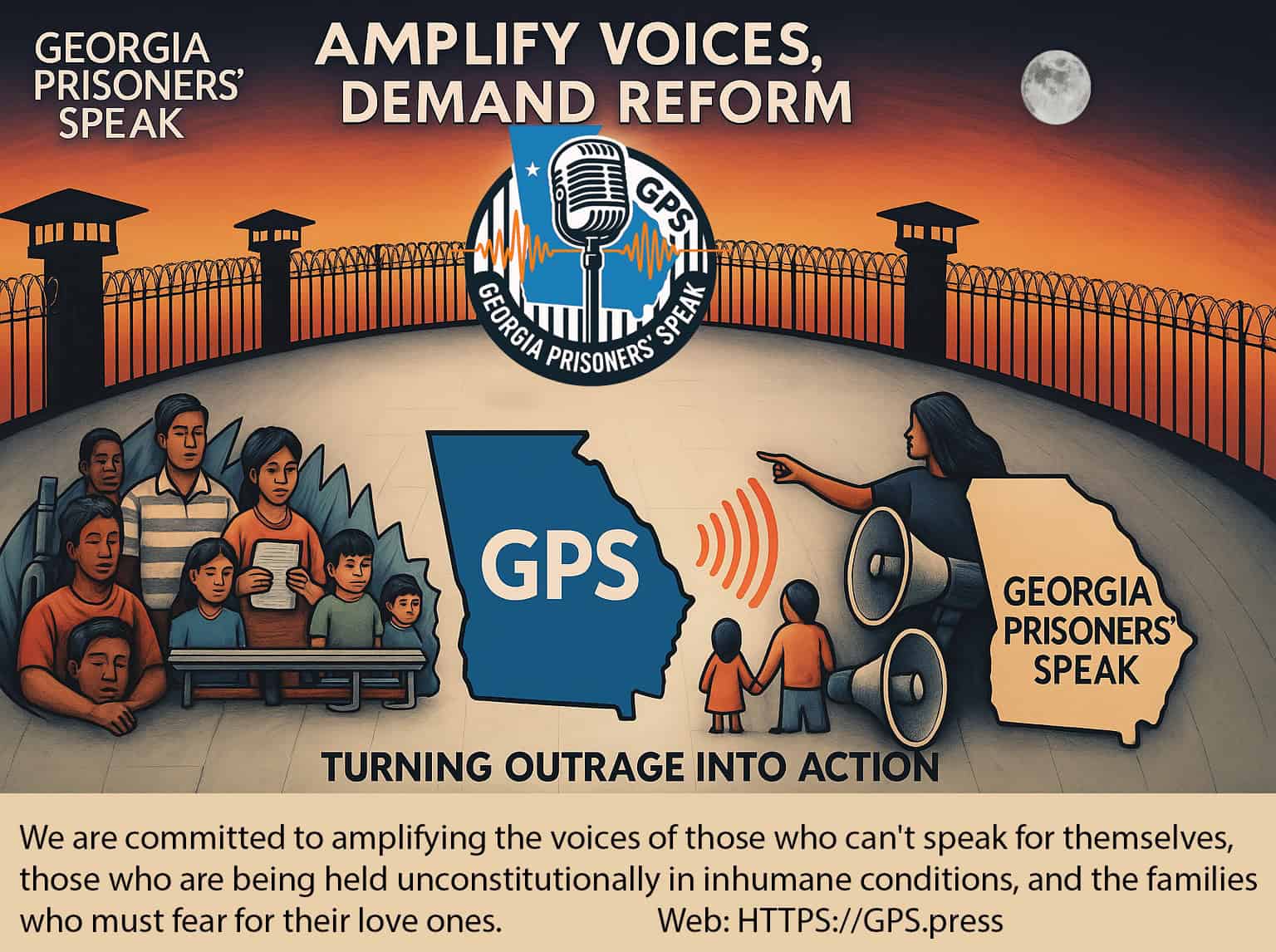47,000 inmates. 9,000 staff positions. 49% vacancy rate. Georgia’s prison system is in crisis, and legislators hold the power to fix it. Asking the right questions forces accountability. When did you last visit a Georgia prison? What’s the plan to address DOJ findings? How will you reduce violence that killed 100+ people in 2024? Advocates who know what to ask change the conversation. 1
Questions About Violence
Hold legislators accountable on safety:
- “What is the current homicide count this year?”—force them to know the number
- “When will Georgia implement DOJ recommendations?”—demand a timeline
- “How are gangs being addressed?”—gangs control housing units at many facilities
- “What happened to the 2021 data blackout?”—GDC stopped reporting violence statistics
Legislators can’t solve problems they don’t acknowledge.
Questions About Staffing
The staffing crisis enables everything else:
- “What is the current vacancy rate?”—49% statewide, 70%+ at worst facilities
- “Why haven’t pay raises fixed retention?”—turnover remains critical
- “How many positions were filled last year?”—net change matters
- “What’s the overtime cost?”—$4 million annually, up 11x since 2019
Without staff, nothing works. 2
Questions About Spending
$1.48 billion deserves scrutiny:
- “How much goes to private prisons?”—payments doubled in 12 years
- “What’s the cost per inmate?”—$60,000 annually, producing what outcomes?
- “How is healthcare spending audited?”—$72 million with worsening outcomes
- “Where are the public reports?”—demand transparency on spending
More money without accountability produces more of the same.
Take Action
Use Impact Justice AI to send advocacy emails with these questions to your legislators. The free tool crafts personalized messages to decision-makers—no experience required.
Ask your representatives:
- What’s your plan to address DOJ findings?
- When did you last visit a Georgia prison?
- What legislation will you introduce for reform?
- How will you ensure transparency?
Further Reading
- How to Write Emails Legislators Read
- Georgia Prison Deaths: DOJ Findings Explained
- GPS Informational Resources
- Pathways to Success
About Georgia Prisoners’ Speak (GPS)
Georgia Prisoners’ Speak (GPS) is a nonprofit investigative newsroom built in partnership with incarcerated reporters, families, advocates, and data analysts. Operating independently from the Georgia Department of Corrections, GPS documents the truth the state refuses to acknowledge: extreme violence, fatal medical neglect, gang-controlled dorms, collapsed staffing, fraudulent reporting practices, and unconstitutional conditions across Georgia’s prisons.
Through confidential reporting channels, secure communication, evidence verification, public-records requests, legislative research, and professional investigative standards, GPS provides the transparency the system lacks. Our mission is to expose abuses, protect incarcerated people, support families, and push Georgia toward meaningful reform based on human rights, evidence, and public accountability.
Every article is part of a larger fight — to end the silence, reveal the truth, and demand justice.


1 thought on “Questions to Ask Legislators on Prison Reform”